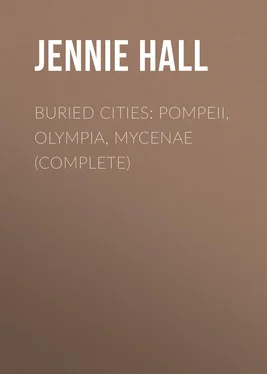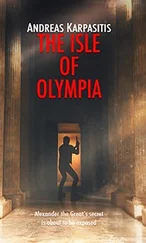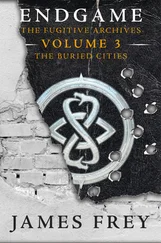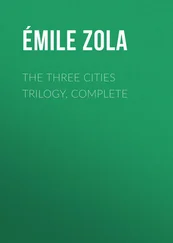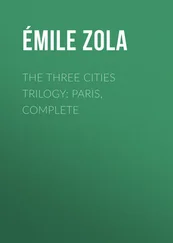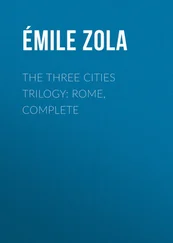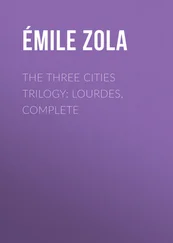Jennie Hall - Buried Cities - Pompeii, Olympia, Mycenae (Complete)
Здесь есть возможность читать онлайн «Jennie Hall - Buried Cities - Pompeii, Olympia, Mycenae (Complete)» — ознакомительный отрывок электронной книги совершенно бесплатно, а после прочтения отрывка купить полную версию. В некоторых случаях можно слушать аудио, скачать через торрент в формате fb2 и присутствует краткое содержание. Жанр: foreign_prose, История, foreign_edu, foreign_antique, на английском языке. Описание произведения, (предисловие) а так же отзывы посетителей доступны на портале библиотеки ЛибКат.
- Название:Buried Cities: Pompeii, Olympia, Mycenae (Complete)
- Автор:
- Жанр:
- Год:неизвестен
- ISBN:нет данных
- Рейтинг книги:3 / 5. Голосов: 1
-
Избранное:Добавить в избранное
- Отзывы:
-
Ваша оценка:
- 60
- 1
- 2
- 3
- 4
- 5
Buried Cities: Pompeii, Olympia, Mycenae (Complete): краткое содержание, описание и аннотация
Предлагаем к чтению аннотацию, описание, краткое содержание или предисловие (зависит от того, что написал сам автор книги «Buried Cities: Pompeii, Olympia, Mycenae (Complete)»). Если вы не нашли необходимую информацию о книге — напишите в комментариях, мы постараемся отыскать её.
Buried Cities: Pompeii, Olympia, Mycenae (Complete) — читать онлайн ознакомительный отрывок
Ниже представлен текст книги, разбитый по страницам. Система сохранения места последней прочитанной страницы, позволяет с удобством читать онлайн бесплатно книгу «Buried Cities: Pompeii, Olympia, Mycenae (Complete)», без необходимости каждый раз заново искать на чём Вы остановились. Поставьте закладку, и сможете в любой момент перейти на страницу, на которой закончили чтение.
Интервал:
Закладка:
Ariston remembered when he himself had been dragged up here two years ago from the pirate ship.
“This leads to the sea,” he thought. “I will go there. Perhaps I shall meet my master, Tetreius. He will come by ship. Surely I shall find him. The gods will send him to me. O blessed gods!”
But what a sea! It roared and tossed and boiled. While Ariston looked, a ship was picked up and crushed and swallowed. The sea poured up the steep shore for hundreds of feet. Then it rushed back and left its strange fish gasping on the dry land. Great rocks fell from the sky, and steam rose up as they splashed into the water. The sun was growing fainter. The black cloud was coming on. Soon it would be dark. And then what? Ariston lay down where the last huge wave had cooled the ground. “It is all over, Caius,” he murmured. “I shall never see Athens again.”
For a while there were no more earthquakes. The sea grew a little less wild. Then the half-fainting Ariston heard shouts. He lifted his head. A small boat had come ashore. The rowers had leaped out. They were dragging it up out of reach of the waves.
“How strange!” thought Ariston. “They are not running away. They must be brave. We are all cowards.”
“Wait for me here!” cried a lordly voice to the rowers.
When he heard that voice Ariston struggled to his feet and called.
“Marcus Tetreius! Master!”
He saw the man turn and run toward him. Then the boy toppled over and lay face down in the ashes.
When he came to himself he felt a great shower of water in his face. The burden was gone from his back. He was lying in a row boat, and the boat was falling to the bottom of the sea. Then it was flung up to the skies. Tetreius was shouting orders. The rowers were streaming with sweat and sea water.
In some way or other they all got up on the waiting ship. It always seemed to Ariston as though a wave had thrown him there. Or had Poseidon carried him? At any rate, the great oars of the galley were flying. He could hear every rower groan as he pulled at his oar. The sails, too, were spread. The master himself stood at the helm. His face was one great frown. The boat was flung up and down like a ball. Then fell darkness blacker than night.
“Who can steer without sun or stars?” thought the boy.
Then he remembered the look on his master’s face as he stood at the tiller. Such a look Ariston had painted on Herakles’ face as he strangled the lion.
“He will get us out,” thought the slave.
For an hour the swift ship fought with the waves. The oarsmen were rowing for their lives. The master’s arm was strong, and his heart was not for a minute afraid. The wind was helping. At last they reached calm waters.
“Thanks be to the gods!” cried Tetreius. “We are out of that boiling pot.”
At his words fire shot out of the mountain. It glowed red in the dusty air. It flung great red arms across the sky after the ship. Every man and spar and oar on the vessel seemed burning in its light. Then the fire died, and thick darkness swallowed everything. Ariston’s heart seemed smothered in his breast. He heard the slaves on the rowers’ benches scream with fear. Then he heard their leader crying to them. He heard a whip whiz through the air and strike on bare shoulders. Then there was a crash as though the mountain had clapped its hands. A thicker shower of ashes filled the air. But the rowers were at their oars again. The ship was flying.
So for two hours or more Tetreius and his men fought for safety. Then they came out into fresher air and calmer water. Tetreius left the rudder. “Let the men rest and thank the gods,” he said to his overseer. “We have come up out of the grave.”
When Ariston heard that, he remembered the Death he had left painted on his master’s wall. By that time the picture was surely buried under stones and ashes. The boy covered his face with his ragged chiton and wept. He hardly knew what he was crying for—the slavery, the picture, the buried city, the fear of that horrid night, the sorrows of the people left back there, his father, his dear home in Athens. At last he fell asleep. The night was horrible with dreams—fire, earthquake, strangling ashes, cries, thunder, lightning. But his tired body held him asleep for several hours. Finally he awoke. He was lying on a soft mattress. A warm blanket covered him. Clean air filled his nostrils. The gentle light of dawn lay upon his eyes. A strange face bent over him.
“It is only weariness,” a kind voice was saying. “He needs food and rest more than medicine.”
Then Ariston saw Tetreius, also, bending over him. The slave leaped to his feet. He was ashamed to be caught asleep in his master’s presence. He feared a frown for his laziness.
“My picture is finished, master,” he cried, still half asleep.
“And so is your slavery,” said Tetreius, and his eyes shone.
“It was not a slave who carried my son out of hell on his back. It was a hero.” He turned around and called, “Come hither, my friends.”
Three Roman gentlemen stepped up. They looked kindly upon Ariston.
“This is the lad who saved my son,” said Tetreius. “I call you to witness that he is no longer a slave. Ariston, I send you from my hand a free man.”
He struck his hand lightly on the Greek’s shoulder, as all Roman masters did when they freed a slave. Ariston cried aloud with joy. He sank to his knees weeping. But Tetreius went on.
“This kind physician says that Caius will live. But he needs good air and good nursing. He must go to some one of Aesculapius’ holy places. He shall sleep in the temple and sit in the shady porches, and walk in the sacred groves. The wise priests will give him medicines. The god will send healing dreams. Do you know of any such place, Ariston?”
The Greek thought of the temple and garden of Aesculapius on the sunny side of the Acropolis at home in Athens. But he could not speak. He gazed hungrily into Tetreius’ eyes. The Roman smiled.
“Ariston, this ship is bound for Athens! All my life I have loved her—her statues, her poems, her great deeds. I have wished that my son might learn from her wise men. The volcano has buried my home, Ariston. But my wealth and my friends and my son are aboard this ship. What do you say, my friend? Will you be our guide in Athens?” Ariston leaped up from his knees. A fire of joy burned in his eyes. He stretched his hands to the sky.
“O blessed Herakles,” he cried, “again thou hast conquered Death. Thou didst snatch us from the grave of Pompeii. Give health to this Roman boy. O fairest Athena, shed new beauty upon our violet crowned Athens. For there is coming to visit her the best of men, my master Tetreius.”
A Marble Table : The lions’ heads were painted yellow.
You can see a table much like this in the garden pictured later.
VESUVIUS
So a living city was buried in a few hours. Wooded hills and green fields lay covered under great ash heaps. Ever since that terrible eruption Vesuvius has been restless. Sometimes she has been quiet for a hundred years or more and men have almost forgotten that she ever thundered and spouted and buried cities. But all at once she would move again. She would shoot steam and ashes into the sky. At night fire would leap out of her top. A few times she sent out dust and lava and destroyed houses and fields. A man who lived five hundred years after Pompeii was destroyed described Vesuvius as she was in his time. He said:
“This mountain is steep and thick with woods below. Above, it is very craggy and wild. At the top is a deep cave. It seems to reach the bottom of the mountain. If you peep in you can see fire. But this ordinarily keeps in and does not trouble the people. But sometimes the mountain bellows like an ox. Soon after it casts out huge masses of cinders. If these catch a man, he hath no way to save his life. If they fall upon houses, the roofs are crushed by the weight. If the wind blow stiff, the ashes rise out of sight and are carried to far countries. But this bellowing comes only every hundred years or thereabout. And the air around the mountain is pure. None is more healthy. Physicians send thither sick men to get well.”
Читать дальшеИнтервал:
Закладка:
Похожие книги на «Buried Cities: Pompeii, Olympia, Mycenae (Complete)»
Представляем Вашему вниманию похожие книги на «Buried Cities: Pompeii, Olympia, Mycenae (Complete)» списком для выбора. Мы отобрали схожую по названию и смыслу литературу в надежде предоставить читателям больше вариантов отыскать новые, интересные, ещё непрочитанные произведения.
Обсуждение, отзывы о книге «Buried Cities: Pompeii, Olympia, Mycenae (Complete)» и просто собственные мнения читателей. Оставьте ваши комментарии, напишите, что Вы думаете о произведении, его смысле или главных героях. Укажите что конкретно понравилось, а что нет, и почему Вы так считаете.
